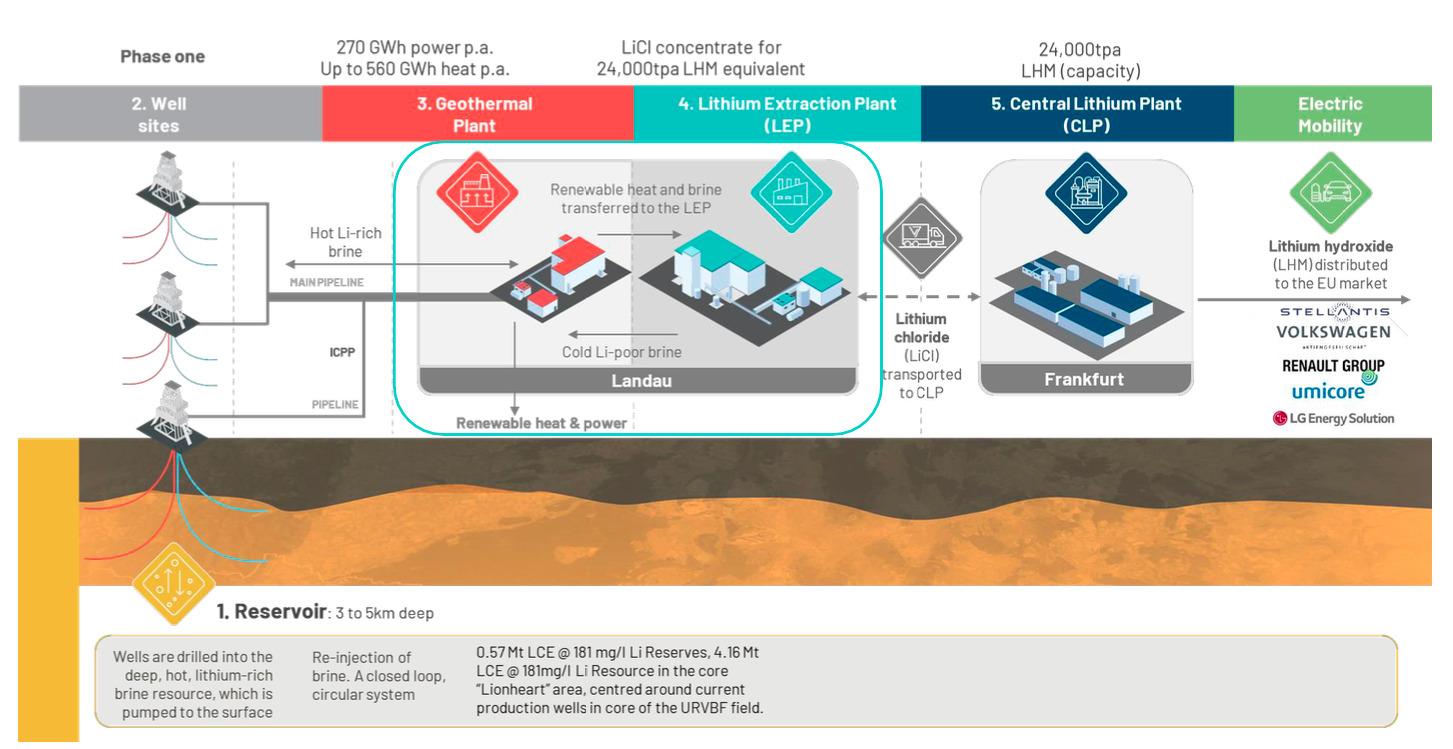Major tick of approval for Vulcan as council votes in favour of renewable energy and lithium extraction plant

The agreement by the Landau City Council underlines Vulcan Energy Resource’s progress towards delivering Phase One at the Zero Carbon lithium project. Pic via Getty Images
- The Landau City Council has agreed to allow Vulcan Energy Resources to construct the Phase One geothermal renewable energy and lithium extraction plant (G-LEP) in Germany
- The GLEP will be built on the intended land which is located in the Landau region
- This move comes shortly after the opening of VUL’s lithium extraction and optimisation plant (LEOP) in Landau
Special Report: In another leg up for Vulcan Energy Resources, the Landau city council has cleared a path for construction of the company’s integrated geothermal renewable energy and lithium extraction plant in Germany’s Upper Rhine Valley.
Vulcan Energy Resources (ASX:VUL) has made another leap forward in its plans to deliver the first tonnes of lithium chemicals domestically produced in Europe for the battery electric vehicle supply chain, following a positive vote from the Landau City Council.
Earlier this week, the Landau City Council formally approved the construction of the geothermal renewable energy and lithium extraction plant (G-LEP) and, following satisfaction of conditions, the right to acquire the land which is within the planned Landau commercial park “Am Messegelände Südost”.
This success is a differentiator for Vulcan in comparison to other proposed critical minerals projects in Europe, such as Rio Tinto’s US$2.4 billion Jadar lithium mine in Serbia which had its exploration licence revoked in January of last year.
Serbian Prime Minister Ana Brnabić said the decision was made following environmental concerns.
Meanwhile, Vulcan has faced no pushback in Germany where its Zero Carbon Lithium projects seeks to provide an answer to where sustainable production of critical minerals will come from in the future.
The prospective land acquisition will add to the site already secured at Industrial Park Frankfurt Hoechst for the Central Lithium Plant (CLP), underlining VUL’s strong progress towards delivering Phase One.
It also demonstrates the strong support by the City of Landau, given the project’s local social and environmental benefits which include producing renewable heat and power as well as enough lithium hydroxide for ~500,000 battery electric vehicles each year.
De-risking event for Phase One
VUL says while the final acquisition agreement still needs to be signed following satisfaction of conditions, the agreement represents a collective stakeholder effort towards realising the enormous benefits of the Zero Carbon lithium project and the significant progress made regarding a more sustainable battery electric vehicle supply chain in Europe.
“We are thrilled to have the City of Landau and its administration working together with us,” VUL managing director and CEO Cris Moreno says.
“This positive decision is a significant de-risking event for Phase One.
“Our immediate focus now is on producing the first tonne of lithium on specification from our optimisation plants in Q1 2024 and finalising our project level Phase One financing by the end of Q2.”
This decision comes hot on the heels of the opening of VUL’s Lithium Extraction and Optimisation Plant (LEOP) in Landau, and during the early stages of VUL’s project-level Phase One financing which kicked off at the end of November.
VUL’s Phase One commercial operation is targeting 24,000tpa lithium hydroxide production for Europe’s battery electric vehicle supply chain.
A closed loop system
Lithium-rich brines and the hot industrial water will be transported to Vulcan’s G-LEP facilities in the Landau commercial park.The hot industrial water will be used to provide carbon neutral heat, thereby producing green energy to benefit the local community in Landau and the surrounding region.

In the LEOP, the lithium will be extracted from the brine before it is returned to the subsurface in a closed loop system.
The lithium chloride produced will be transported to the Industrial Park in Hoechst for conversion to lithium hydroxide.
This article was developed in collaboration with Vulcan Energy Resources, a Stockhead advertiser at the time of publishing.
This article does not constitute financial product advice. You should consider obtaining independent advice before making any financial decisions.
Related Topics

UNLOCK INSIGHTS
Discover the untold stories of emerging ASX stocks.
Daily news and expert analysis, it's free to subscribe.
By proceeding, you confirm you understand that we handle personal information in accordance with our Privacy Policy.








